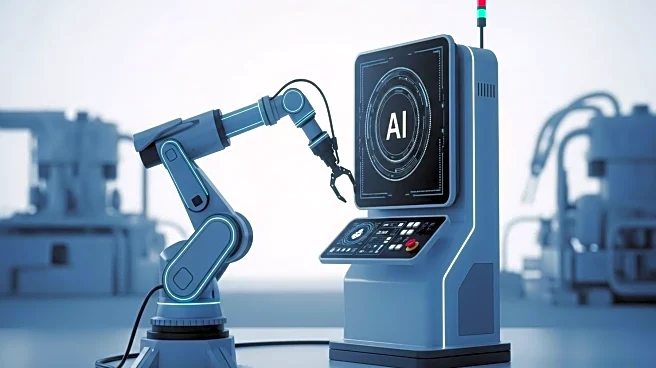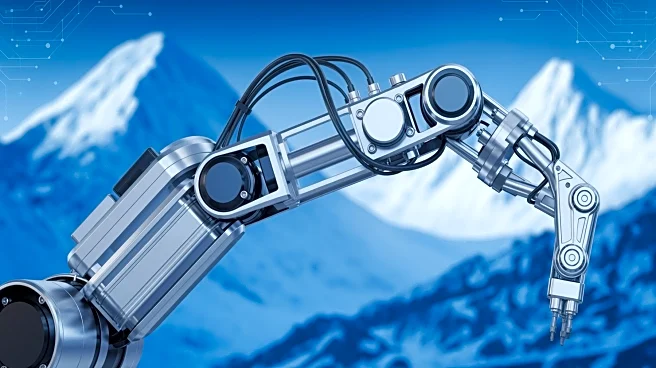What is the story about?
What's Happening?
At Fabtech 2025, the manufacturing industry showcased a significant focus on artificial intelligence (AI) technologies. AI-driven machinery and software were prominently featured, highlighting the ongoing integration of AI in manufacturing processes. Despite some companies expressing fatigue over AI hype, the technology continues to play a crucial role in optimizing operations and enhancing performance. Bryan Graiff from the consulting and accounting firm Armanino emphasized that strategic implementation of AI can lead to new efficiencies, particularly in back-office functions. The event underscored the potential for AI to transform various aspects of manufacturing, from production to administrative tasks.
Why It's Important?
The integration of AI in manufacturing is pivotal for the industry's future, as it promises to enhance productivity and streamline operations. By adopting AI technologies, manufacturers can achieve greater efficiency, reduce costs, and improve product quality. This shift is particularly significant in the context of global competition, where technological advancements can provide a competitive edge. Companies that strategically implement AI stand to gain from increased operational efficiency and potentially higher profitability. The focus on AI at Fabtech 2025 reflects a broader trend in the industry towards embracing digital transformation to meet evolving market demands.
What's Next?
As AI continues to permeate the manufacturing sector, companies are likely to explore further applications of the technology beyond traditional uses. This could include advancements in predictive maintenance, supply chain optimization, and enhanced customer service through AI-driven insights. Manufacturers may also face challenges related to workforce adaptation, as employees need to acquire new skills to work alongside AI systems. The industry will need to address these challenges through training and development programs to ensure a smooth transition. Additionally, regulatory considerations around AI usage and data privacy may emerge as critical factors influencing the pace and scope of AI adoption in manufacturing.
Beyond the Headlines
The adoption of AI in manufacturing raises important ethical and cultural considerations. As AI systems take on more decision-making roles, questions about accountability and transparency become increasingly relevant. Manufacturers must ensure that AI technologies are implemented responsibly, with clear guidelines and oversight to prevent potential biases or errors. Culturally, the shift towards AI-driven processes may alter workplace dynamics, necessitating a focus on human-AI collaboration. Long-term, the successful integration of AI could lead to a reimagining of manufacturing roles, with a greater emphasis on creativity and problem-solving skills.

















